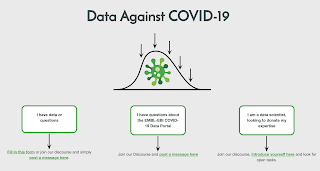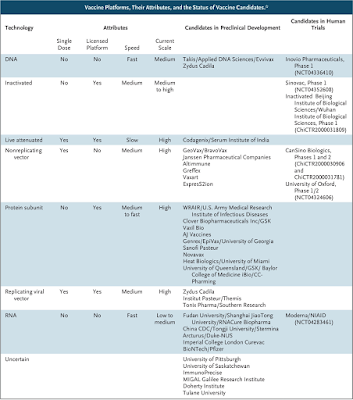The Promise of Data-Driven Drug Development
Developing a new drug costs $2.56 billion! (Tufts Study)
We all agree that data-driven drug development can help reduce costs and save time. But how do we collectively make this happen? This was the topic of discussion at a panel organized by the Center for Data Innovation, a non-profit, non-partisan think tank studying the intersection of data, technology and policy.
Our panel with Chris Austin, Director of NCATS and Brad Casey, Associate Director of Research Programs at Michael J Fox foundation was facilitated by Joshua New, Senior Policy Analyst at the Center. We were asked to discuss opportunities and challenges in creating a National Health Data Research Exchange to drive data-driven drug development. I share with you salient points from our panel discussion here.
Why Now?
Lot has changed over the last decade to enable this data-driven innovation. Due to digital transformation of the healthcare ecosystem, >95% of hospitals have adopted Electronic Health Records (EHRs). This adoption has increased the quantity and quality of data available for biomedical research and it offers insights at various stages of drug development including discovery, FDA review and post-market surveillance. What else has changed? We can practically sequence a person's whole genome for $200. Cloud computing has enabled individuals and small organizations to compete in research, innovation and data challenges which were historically possible only at large, resourceful organizations with scalable IT infrastructure. We now have data leaders in the C-Suite who are responsible for creating and enhancing value from an organization's data assets.
Artificial Intelligence
AI is beginning to show promises in healthcare and research. For instance, Deep 6 AI analyzes structured and unstructured clinical data to match patients to eligibility criteria for clinical trials. MIT's AI tool can predict breast cancer up to 5 years early. Collectively, as the health data science community, we will be spending much of our time being concerned with generating and creating datasets that are accurately labeled and can be used in powerful AI algorithms such as deep learning methods. We must concern ourselves with ethical considerations to avoid creating "black box" algorithms that diagnose disease or make treatment recommendations.
A National Health Research Data Exchange
Data-driven innovation (research data exchanges, advancements in genomics, AI, automation, etc.) is already transforming drug development in so many ways. Research networks such as ClinGen and the Global Alliance for Genomic Health (GA4GH) are enabling sharing of high throughput genomic data from patients to power risk prediction algorithms. NCI's Cancer Research Data Commons (CRDC) and NCATS's Center for Data to Health (CD2H) are creating a nationwide data ecosystems which are making clinical and research data more meaningful, open and accessible to drive discoveries. We must improve case-level, labeled, high quality data to make research exchanges more usable for discovery and development.
Non-Technical Barriers to Data Sharing
It is important for researchers and innovators to educate themselves about federally-mandated, local and institutional policies on health data research and product development. Don't just leave it to the Institutional Review Board! Another major issue at hand is one of data poverty. Data poverty is not just limited to clinical trials. Majority of participants in biomarker driven clinical trials are of European descent which limits the utility of precision medicine treatments to other world populations. - "It's hard to tailor treatments for people's unique needs, if they aren't included in the studies" notes this article - The DNA Data We Have is Too White. Scientists Want to Fix That. We must promote equity in studies such as the All of Us initiative which had an original budget of $215M to develop a million participant cohort which dwindles in comparison to China's launch of a 15 year Precision Medicine Initiative launched in 2018 with $9.2B in funding. We must address equity issues and promote representation of demographic subgroups in our clinical trials. Should the FDA establish diversity guidelines for clinical trials?
Training
The panel unanimously noted the shortage of data scientists who are equipped with the skills necessary to mine these emerging datasets to drive drug development both in academia and industry. Many universities including us at Georgetown are launching new Health Data Science degree-granting graduate programs to train the next generation of health data scientists. We must pay close attention to the needs of various industries who are at the cutting-edge of applying health data to their programs and products while designing the curriculum for such training programs. We must also train students in both hard (programing, cloud computing) and soft skills (policy, entrepreneurship) for them to become successful health data scientists.
To view the full video recording of our panel discussion, click here.
I am interested in your thoughts on this topic. Let's continue the conversation...please share your comments.




Comments
Post a Comment